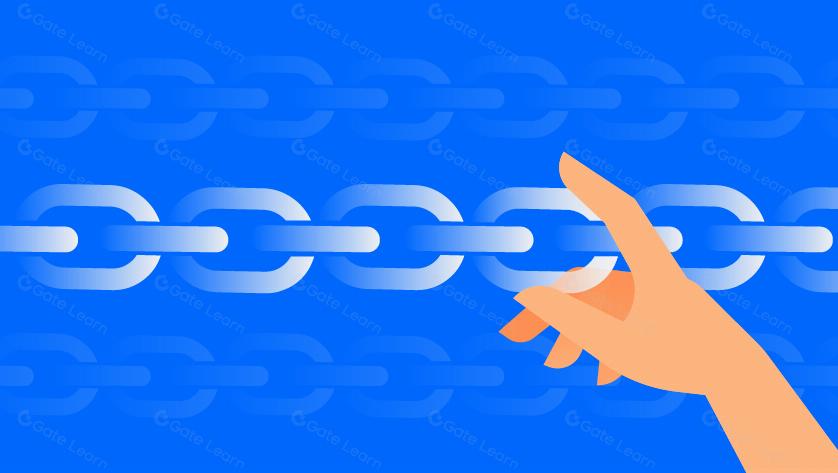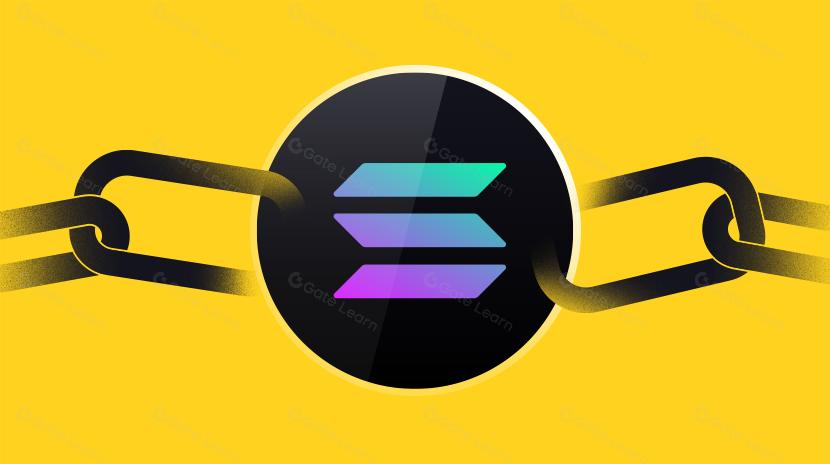TRON Definition

What Is Positron?
Positron is an early-stage cryptocurrency project with the token symbol TRON and is classified as a coin. A coin typically refers to a native asset on its own independent blockchain, rather than a token issued on another public chain. According to available public information, Positron has remained largely inactive over the long term, with very limited trading pairs and market prices that are difficult to verify. It is important to note that Positron should not be confused with TRX, the native coin of the TRON public blockchain. Their names and symbols are similar, which can easily cause confusion. Always double-check the project page and contract details before making any investment decisions.
What Are the Current Price, Market Cap, and Circulating Supply of Positron (TRON)?
Based on the latest available data as of July 30, 2016, the project was marked as "inactive" with zero trading pairs (source: previous input). Since this information is significantly outdated (over six months old), it is more relevant to describe trends and status: long-term inactivity implies extremely low liquidity, difficulty in price discovery, and unreliable market capitalization estimates. It is unlikely that you will find credible or up-to-date pricing information in the short term.
When reviewing market data, newcomers often encounter these key terms:
- Price: Refers to the most recent transaction reference level. If no trades have occurred for a long period, this figure loses its significance.
- Market Cap: Calculated as the circulating supply multiplied by the price. If the price cannot be verified, the market cap can be misleading.
- Circulating Supply: The amount of tokens currently available for trading. If the project is dormant or wallets are inactive, actual tradable supply may be much lower.
Who Created Positron (TRON) and When?
Public information on Positron is limited. The only traceable sources are its official website (http://positron.ninja/) and records from 2016. There is no official launch date disclosed, nor are there authoritative updates from subsequent years. During 2016 and adjacent periods, many experimental or niche crypto assets emerged, many of which never developed a robust ecosystem and eventually became inactive. Positron’s current status is similar to those early projects.
How Does Positron (TRON) Work?
Labeled as a coin, Positron would generally be expected to serve as a native asset on its own independent chain. However, there are no public details on its consensus mechanism or technical specifications. Consensus mechanisms define how a blockchain reaches agreement on transaction records—common types include PoW (Proof of Work) and PoS (Proof of Stake). Without official technical documentation, it is impossible to confirm which mechanism Positron employs.
For newcomers, it’s important to understand:
- Coins vs. Tokens: Coins typically operate on their own mainnet; tokens are issued via smart contracts on other public blockchains.
- Wallets and Transactions: To transact, you need a wallet address and a signature. The signature requires a private key—whoever controls the private key controls the asset.
What Can Positron (TRON) Be Used For?
In general, cryptocurrencies can be used for value storage, peer-to-peer transfers, or participation in ecosystem applications. For Positron specifically, there is little publicly verifiable evidence of active use cases or ecosystem development. Merchant adoption and developer activity are unclear. As a result, its utility and usability are likely limited; Positron is more suitable for historical study or as a case example rather than for actual payments or DeFi participation.
What Are the Main Risks and Regulatory Considerations for Positron (TRON)?
Key risks include:
- Liquidity Shortage: With no active trading over time, buying or selling becomes difficult. Prices may swing sharply with even minor trades.
- Lack of Transparency: Absence of authoritative disclosures makes it hard to evaluate fundamentals.
- Name Confusion: The symbol “TRON” is easily confused with “TRX” from the TRON public chain. Double-check project pages and official links to avoid purchasing the wrong asset.
- Phishing & Fake Sites: Always use trusted sources and never enter seed phrases or private keys into unverified sites.
- Compliance: Most platforms require KYC (identity verification). Follow your local laws and tax regulations.
- Account Security: Enable 2FA (two-factor authentication) and withdrawal whitelists to protect your account from theft.
What Is the Long-Term Value of Positron (TRON)?
The long-term value of crypto assets generally depends on continued technical development, user demand, and network effects. For Positron, since data only exists up to 2016 and the project remains inactive with no clear applications, its long-term value is difficult to validate or refute—it resembles a high-uncertainty asset. If your goal is research or learning, consider studying its early documentation or the issues caused by similar naming conventions. If considering investment, prioritize due diligence and risk management, and be prepared for “long-term illiquidity or inability to exit.”
How Can I Buy and Safely Store Positron (TRON) on Gate?
Step 1: Register and Complete KYC. Create an account on Gate and complete KYC (identity verification), which is required for compliant trading and improves account security and withdrawal limits.
Step 2: Enable Account Security Features. Activate 2FA (two-factor authentication), set up anti-phishing codes and withdrawal whitelists, and regularly review login devices to reduce account theft risks.
Step 3: Deposit Funds. Deposit fiat currency or stablecoins like USDT into Gate as needed to prepare for trading.
Step 4: Search for and Confirm Asset Listing. Search for “Positron” or “TRON” on Gate. If there are no trading pairs or listings available, you cannot currently purchase Positron directly on Gate; in this case, monitor platform announcements for updates and avoid using unverified channels.
Step 5: Place a Trade Order (If Available). If trading pairs are available, you can place market or limit orders. Market orders execute at current prices quickly; limit orders allow you to specify your desired price but may require waiting.
Step 6: Withdraw and Store Assets Securely. After purchasing, it’s recommended to withdraw your assets to a non-custodial wallet. Non-custodial wallets give you full control over your private keys; securely back up your wallet’s seed phrase offline—avoid taking photos or storing it in the cloud. You can also use hardware wallets and withdrawal whitelists for added security.
Step 7: Ongoing Management and Risk Control. Maintain records of your trades and holdings, stay updated with project news and Gate announcements, and reassess your positions if there are significant market changes or updates.
How Does Positron (TRON) Differ from TRON’s TRX?
- Underlying Positioning: Positron is an early niche project with little public technical detail or ecosystem activity; TRON’s TRX is the native coin of a mainstream public blockchain supporting smart contracts and diverse applications.
- Symbol & Naming: Positron uses “TRON,” while TRON’s native coin uses “TRX.” The similar names can cause confusion—always verify before trading.
- Activity & Ecosystem: Positron has been inactive with few or no trading pairs; TRX’s ecosystem is highly active, covering stablecoins, cross-chain solutions, DeFi, and more.
- Liquidity & Availability: Positron has weak liquidity and may not be listed on exchanges; TRX is widely available with strong liquidity. These are entirely different assets.
Summary of Positron (TRON)
Positron (TRON) is an early cryptocurrency with limited disclosure and long-term inactivity—its price and market cap cannot be reliably assessed. Its symbol closely resembles “TRX” from the TRON public chain, making confusion likely; always verify both project details and platform listings before investing. If not listed on Gate, you cannot buy it directly; if trading pairs appear in the future, follow compliance procedures including KYC and account security setup before placing orders, then focus on secure withdrawal and non-custodial storage. Overall, Positron is best suited as a historical reference for research rather than investment; proceed with caution regarding capital allocation and exit planning.
FAQ
What Is TRON?
TRON is a decentralized platform built on blockchain technology aiming to provide a free content entertainment ecosystem for global users. It features an independently developed consensus mechanism for efficient transaction processing and supports smart contracts as well as DApp development. The native token of the TRON network is TRX, which is used for transaction fees, resource consumption, and ecosystem incentives.
How Do I Transfer Assets and Interact on the TRON Network?
Transfers on TRON require a compatible wallet such as TronLink or imToken and sufficient TRX balance to cover bandwidth or energy fees. After purchasing TRX on exchanges like Gate, you can withdraw funds to your personal wallet address, then initiate transfers by entering the recipient’s address. Always consider network congestion when interacting to optimize costs.
How Are Bandwidth and Energy Fees Calculated on TRON?
TRON uses two resources—Bandwidth and Energy—to regulate network load. Bandwidth is consumed by basic transactions; Energy is required for smart contract execution. Users can obtain free allocations by staking TRX; exceeding these limits incurs additional TRX fees. This model lowers costs for small transactions and encourages long-term holding.
What Are the Main DApps in the TRON Ecosystem?
The TRON ecosystem includes DeFi lending protocols (such as Sun), NFT marketplaces, games, social content platforms, and more. These applications leverage TRON’s high throughput and low fees to deliver fast and affordable user experiences. Beginners can check Gate’s market pages for trending TRON ecosystem tokens and monitor project developments.
How Can I Safely Store TRX Assets in a TRON Wallet?
It is recommended to use hardware wallets (like Ledger) or reputable software wallets for storing TRX. Regularly back up your private keys and seed phrases offline. Beware of phishing sites and malicious authorizations—always verify contract addresses before granting permissions. If holding long-term, consider staking your assets for additional rewards but be sure to understand associated risks.
Quick Reference Table: Key Terms in TRON
- Smart Contract: Code executed automatically on the blockchain under preset conditions without third-party intervention.
- Virtual Machine: The TRON Virtual Machine (TVM) runs smart contracts on the network and is compatible with Ethereum Virtual Machine standards.
- Energy: Resource consumed during smart contract execution on TRON—similar to gas in Ethereum.
- Bandwidth: Resource consumed when transferring assets or making transactions on TRON—used to limit network traffic.
- Delegation: Mechanism where users delegate TRX to Super Representatives to participate in network governance and earn rewards.
- Super Representative: Node operators elected by token holders who are responsible for block production and network maintenance.
Further Reading & References on TRON
-
Official Website / Whitepaper:
-
Developer Resources / Documentation:
-
Authoritative Media / Research:
Related Articles

The Future of Cross-Chain Bridges: Full-Chain Interoperability Becomes Inevitable, Liquidity Bridges Will Decline

Solana Need L2s And Appchains?
